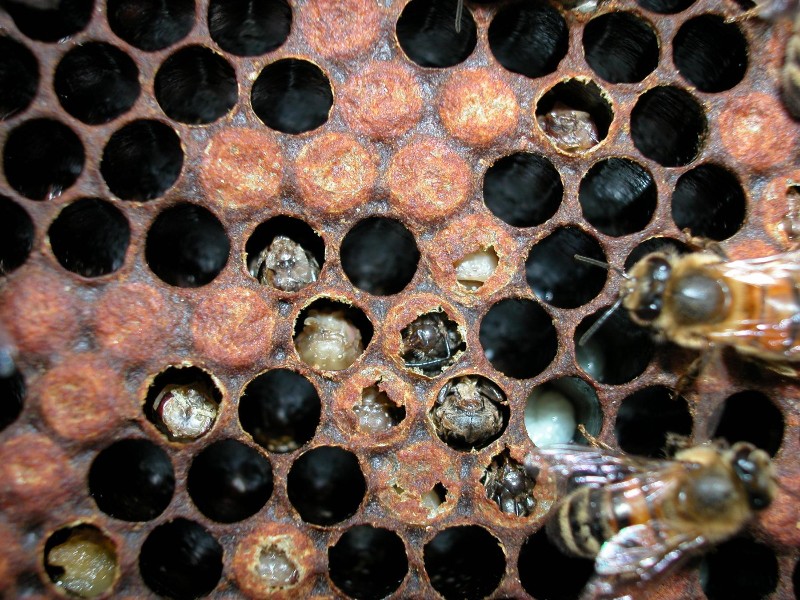EKBee
House Bee
- Joined
- Apr 18, 2013
- Messages
- 105
- Reaction score
- 0
- Location
- West of Scotland
- Hive Type
- National
- Number of Hives
- 20
Varroa mites are not insects.
Ha correct ! too many legs for that

Varroa mites are not insects.
This is extraordinary; what on earth equips you to come to such a judgement? Pulling in further "evidence" of an earlier post? Responding in this fashion is not helpful.Not wishing to sound too harsh but I will stick with my original diagnosis of inadequate varroa control. If I may quote one of your earlier posts from a few years ago:-
"Firstly i would like to thank everyone for their help and opinions.
Because everyone bee keeps differently and there is no set rule on what is right and what is wrong, and the only one who knows best are the bees. I think is it wrong for people to say that you should never do this or never to that?
The guy who taught me beekeeping has used sugar dusting for years and we both think it is a nicer way of treating the bees then using chemicals. He has been a honey farmer for years and has over three hundred hives. He has not seen any evidence of lack of emerging brood or any other side effects. I also know a beekeeper who dusts his bees with dust from the roads and paths?
(The way I look at it is I would not like having chemicals put in my house or put all over me).
I have two hives and two nuc's on the go and the varroa count is very, very low.
All I am saying is this is what works for my bees."
I rest my case.
Yes, no point in sampling unless symptoms suggest it.
This is extraordinary; what on earth equips you to come to such a judgement?
Hi guys can anyone help
I've had the worst winter ever
I had 18 hives in total
Yesterday I looked at the bees and I only had two hives in the site with 11 hives
3 hives in the site with 6 on
And the single hive was ok
I found that all of the hives were very heavy full of stores
Some hives had very little dead bees in them all on the frames
Some hives had a floor full of bees
Originally Posted by JEP
Not wishing to sound too harsh but I will stick with my original diagnosis of inadequate varroa control.
based on what?







Some boxes empty
As in nothing in them at all! Not even dead carcasses? Cos if nothing there then something must have 'et em or removed them. Bees do not simply vanish without cause.
Unless HM is on the right track with with alien bee-ings going on.
yes empty no bodies nowt.
He suspects they has absconded but isn't sure.
All seemed fine when OA was used at christmas.
A couple were Q- rest were complete dead outs or empty.
Thats on the assumption that varroa was present.Varroa not being controlled. What do you think is the common denominator that most likely caused the death of so many colonies?
Now I know you are taking the michael....go stand in the naughty corner!Thats on the assumption that varroa was present.
What is interesting is that a number of people who are reporting dead hives are also reporting that the colonies were treated ... in some cases with Autumnn thymol and OA trickling in winter. If these colonies are dying as a result of varroa (as seems to be the overriding concensus) then ... why isn't treatment working ? .
Or is is that the treatment is actually weakening the bees and making them more susceptible to the vectored diseases carried by varroa .. .
.

I am not saying that my hives do not have some varroa in them but it does seem that it is at a manageable level. .